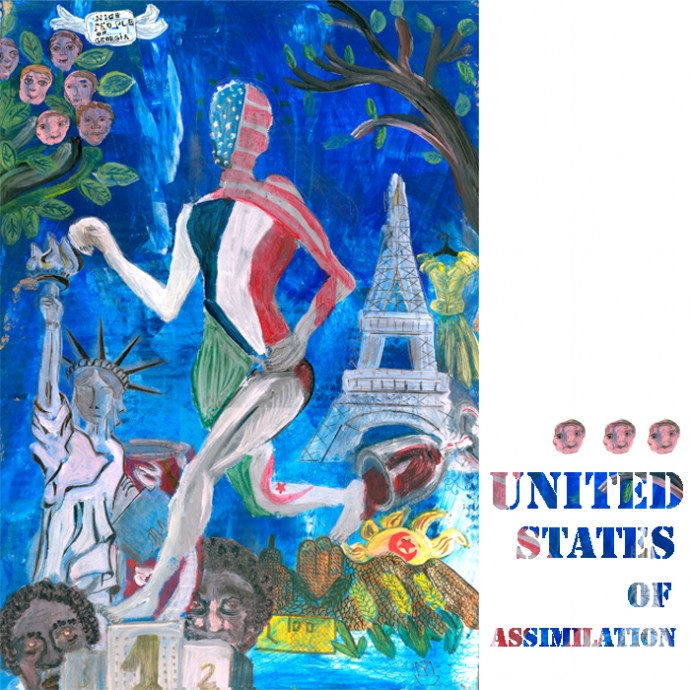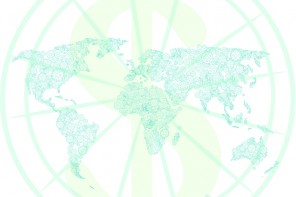How does one decide with whom they identify? Is it by race, class or country of birth? Or do people simply feel most at home with those who accept them as they are? Between the years of 1954-1962, a bloody, brutal war was waged between Algeria and its ruling country, France. Though Algeria was granted independence more than fifty years ago, tension between the two groups still exists in modern-day France. Forever marked by their appearance, Algerian immigrants, it seems, will always stand out. Maifa Beghold, an Algerian by blood, born and raised in France, is now studying and living in America. She tells us about her upbringing, her identity, and where she feels she best belongs.
Though my genes are Algerian, I consider myself French. I grew up in France around French people, culture and food. French is my first language. I would consider France to be my true home, the place that holds all of my fond memories and where my life-shaping moments happened. I love France, but I was never completely accepted there. My appearance was a constant reminder that my heritage is Algerian, glaring proof that I am not a ‘real’ French girl.
The French and Algerian have a lot of history. I’ve never lived in Algeria, so it’s something I haven’t personally experienced; I only know what I’ve read, what I was taught at school, or what my parents have told me. They lived in Algeria until they divorced. At the time, my mother was pregnant with me and trying to finish medical school. She moved to France for the better education opportunities it offered and so I would have a better life. It wasn’t easy when she first arrived. She was still in school and living in a dorm when I was born. My dad moved to France ten years later when my parents decided to get back together and remarry. Even though my parents have lived in France for many years now, my family has never felt completely accepted by the French. Other kids in school would always say things to me about my family and where they came from. I didn’t really understand why they cared where my parents came from, but they did. It bothered me, but it was a fact I had to accept.
When I considered moving to the United States, I really wasn’t sure how I would be treated and what part my heritage would play in that. All I really knew about was the American Dream. Even growing up in France, American culture had a very strong presence. It was everywhere in the media. We watched Hollywood films and television shows filmed in New York. To my friends and me, America always seemed so exciting, fascinating and big. It seemed like a place where you’d go to make something of yourself. I wanted to be something; I wanted to achieve the American Dream.
My parents really pressured me to do something productive after high school. My mom is a very successful oncologist and is a firm believer in post-secondary education. She encouraged me to go to university so I would succeed. I applied for a few programs that worked with American universities on a whim. I wasn’t really sure if I would get into any of them, but I did. That’s how I ended up at Georgia College.
My heritage definitely affects me less when I’m in America. In the States, people don’t see me as Algerian. They see me as white and foreign and that’s it. They see dark hair and dark eyes and they think, ‘you’re a bit spicy but still white’. Honestly, the only type of racism I’ve experienced in America has been from my friends, in jest. They know me well, so it doesn’t offend me. My heritage isn’t brought up by people I don’t know, though. In France, everyone is very aware of the past between Algeria and France, while in America, it seems like no one even knows about it or it doesn’t even matter. I don’t think they teach much about that area of the world, or at least its history, in school. In America, it’s all about black and white. Everyone that’s not black or Latino seems to be considered white, or at least accepted as a white person and held to similar standards.
When I tell Americans that I am French, they just accept it and don’t seem to think much about it at all. I actually had more amusing reactions out of Americans than anything else. I learnt about the stereotype that French girls don’t shave after a few guys asked me if I had hairy armpits. Those kind of questions are just funny to me. Americans are less critical about weight and appearance too. When I was in France, I always felt bigger than a lot of the other girls. After being in America for so long, especially Georgia, I now think French girls are far too skinny. Being in the States changes your perception of yourself and others, mostly in a positive way. Americans really value what they can do or what they’ve accomplished. It’s less about a person’s superficial qualities and more about who they really are at their core. American’s value what they believe in and their personal accomplishments more than anything else.
People often asked me why I stayed in the States. A lot of the other international students only stayed a semester or a year at most. My response to the question is: why leave? I guess I think it is better to stay than to leave. Of course, there are some things I miss about France—definitely food and fashion—but overall I like America far more. The people are kinder and friendlier in general, especially in Georgia. It seems like they want to help. It seems like they care. I don’t think I will leave, at least not until I’m finished with school. I’ve found my place here and I like it that way.







